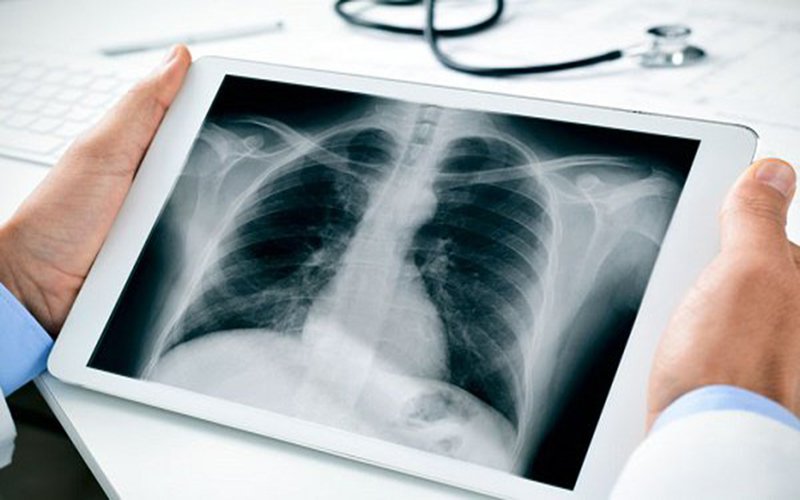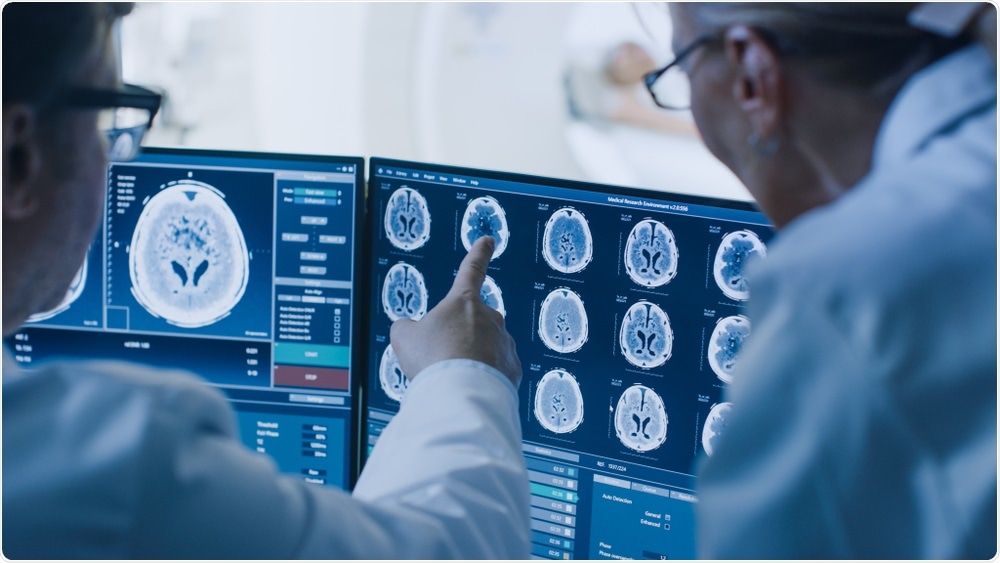In recent breakthroughs, researchers have developed an artificial intelligence model named Sybil (Artificial Intelligence Can Predict Lung Cancer with 1 CT Scan), designed to predict an individual’s risk of lung cancer with remarkable accuracy, all from a single CT scan. Let’s delve into the details of this revolutionary advancement and explore its potential implications for the future of lung cancer diagnosis and treatment.
Understanding the Significance of Early Lung Cancer Prediction
Lung cancer ranks as the second most prevalent cancer in the United States. Detecting it early is pivotal for successful treatment outcomes. With the advent of AI, particularly Sybil, the landscape of lung cancer prediction is undergoing a transformative shift.

Meet Sybil: The AI (Artificial Intelligence) Model Redefining Lung Cancer Risk Assessment
Sybil isn’t just another AI tool; it’s a groundbreaking model that categorizes individuals into high, medium, and low-risk groups based on a single CT scan. This innovative approach opens doors to proactive and personalized healthcare strategies.
Research and Accuracy: Unveiling Sybil’s Predictive Prowess
A comprehensive study evaluating Sybil’s performance reveals its ability to predict future lung cancer risks with a level of accuracy that surpasses traditional diagnostic methods. The implications of such precision are profound, offering new avenues for early intervention and tailored treatment plans.
AI’s Role vs. Physician’s Expertise: Striking a Harmonious Balance
While Sybil showcases remarkable predictive capabilities, it’s crucial to clarify that AI is a tool that complements rather than replaces physicians. We explore the nuanced roles of AI and physicians in the diagnostic process, highlighting the irreplaceable human touch in healthcare.

Future Prospects and Ongoing Clinical Trials
The journey of Sybil is far from over. Ongoing clinical trials are exploring its utility in clinical decision-making and lung cancer screening. What lies ahead could redefine standard practices in healthcare, potentially leading to a more efficient and effective approach to lung cancer detection.
Navigating Ethical Considerations in Artificial Intelligence-Driven Healthcare
The integration of Artificial Intelligence in healthcare prompts ethical considerations. Addressing concerns head-on, we emphasize the responsible and ethical use of AI tools like Sybil, ensuring that patient well-being remains at the forefront.
Patient Experience: Empowering Informed Decision-Making
Understanding one’s risk through Sybil’s predictions can empower patients to make more informed decisions about their health. We delve into how this newfound knowledge may influence choices and encourage a collaborative approach between patients and healthcare providers.

Limitations and Challenges: Grappling with the Realities of Artificial IntelligencePredictions
As we celebrate the potential of Sybil, it’s essential to acknowledge its limitations and the challenges that must be navigated for widespread adoption. Realistic expectations and ongoing advancements are crucial for the continued success of AI in healthcare.
Sybil in Routine Lung Cancer Screening: A Paradigm Shift
Exploring the role of Sybil in routine lung cancer screenings, we evaluate how its integration could enhance the effectiveness of current screening protocols. Balancing Sybil’s contributions with other diagnostic methods ensures a comprehensive approach to patient care.
Public Perception and Acceptance: Bridging the Gap
How will the public perceive Artificial Intelligence involvement in healthcare, particularly in predicting life-altering conditions like lung cancer? We discuss strategies for fostering acceptance, building trust, and ensuring a positive perception of AI-driven advancements.
Artificial Intelligence and the Evolving Healthcare Landscape: A Glimpse into the Future
Reflecting on the broader impact of Artificial Intelligence on healthcare, we explore how the integration of such technologies is reshaping medical practices. From diagnostics to treatment, AI’s presence is ushering in a new era of personalized and efficient healthcare.

Sybil’s Potential in Personalized Medicine: Tailoring Care to Individual Needs
Sybil’s role extends beyond predictions; it contributes to the realm of personalized medicine. Understanding how this AI model tailors treatment plans based on individual risk assessments showcases the potential for a more patient-centric approach to healthcare.
Addressing Common Questions about Sybil and Artificial Intelligence in Lung Cancer Prediction
Can Sybil replace physicians in determining lung cancer factors?
No, Sybil complements the expertise of physicians by predicting future risks. The collaboration between AI and physicians remains essential for comprehensive patient care.
How does Sybil handle the analysis of CT scans?
Sybil utilizes advanced algorithms to analyze CT scans, identifying patterns and factors that contribute to accurate risk assessments.
What ongoing clinical trials are exploring Sybil’s utility?
Several clinical trials are underway, focusing on evaluating Sybil’s impact on clinical decision-making and its benefits in routine lung cancer screenings.
Are there any privacy concerns with the use of Artificial Intelligence in healthcare?
Addressing privacy concerns is paramount. Ethical guidelines and robust security measures are in place to safeguard patient information when utilizing AI tools like Sybil.
How can patients benefit from Sybil’s predictions?
Patients can benefit by gaining early insights into their lung cancer risks, enabling informed decisions, and potentially improving treatment outcomes through personalized care plans.
See more with YOUTUBE
Conclusion
In conclusion, the fusion of AI, exemplified by Sybil, and human expertise in healthcare represents a significant leap forward in predicting lung cancer risks. While AI contributes valuable insights, the essential role of physicians persists. The ongoing evolution of AI in healthcare promises a future where early detection and personalized medicine become standard practices.
FAQs: Unveiling the Future of Lung Cancer Diagnostics
- Can Sybil completely replace the need for physicians in lung cancer diagnoses?
- No, Sybil serves as a valuable tool, complementing the expertise of physicians rather than replacing them.
- How accurate is Sybil in predicting lung cancer risks?
- Sybil demonstrates impressive accuracy, surpassing traditional methods and identifying factors beyond human vision.
- Are there any risks or limitations associated with relying on AI for cancer predictions?
- While AI enhances diagnostics, it’s crucial to consider clinical validation and human oversight to address potential limitations and uncertainties.
- What is the anticipated timeline for Sybil’s integration into routine clinical practice?
- The timeline depends on the ongoing clinical trials, with researchers working diligently to ensure the tool’s efficacy and safety.
- How can individuals benefit from Sybil’s predictive capabilities in lung cancer screenings?
- Sybil’s insights offer individuals a more personalized and nuanced understanding of their lung cancer risks, enabling proactive healthcare decisions.

